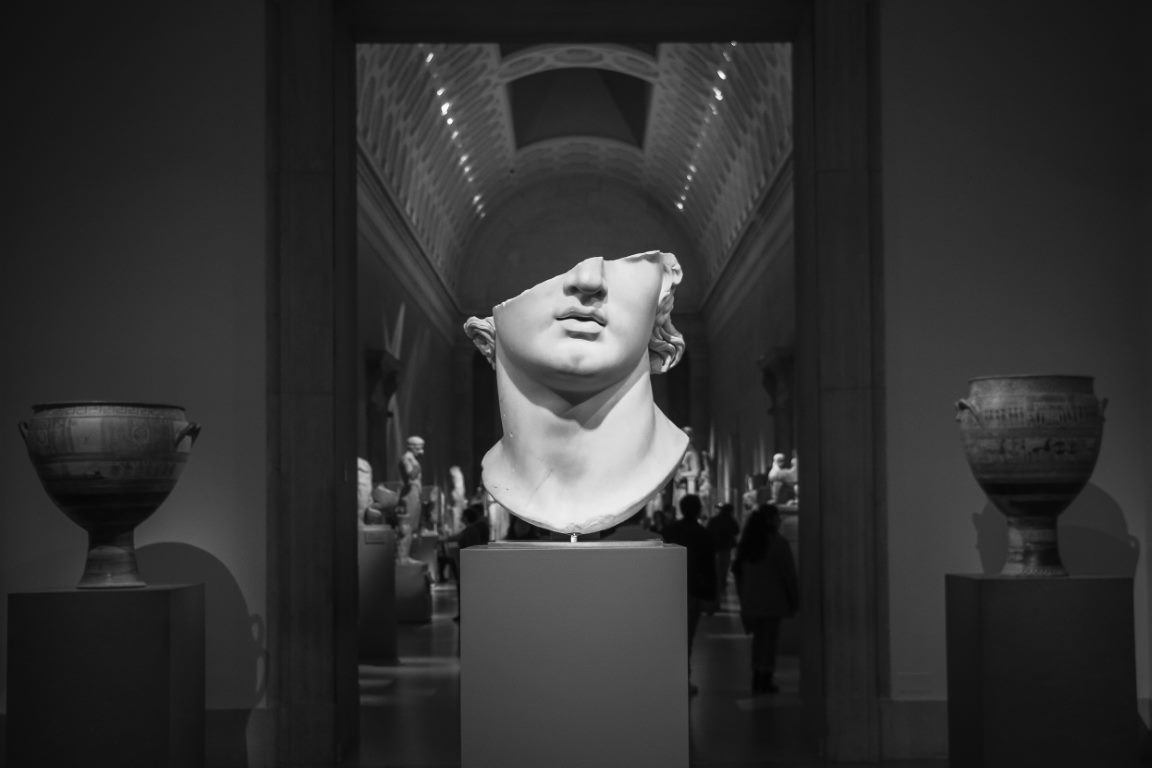How to plan your Half Day Athens Private Tailor Made City Tour
If you’re headed to Athens, make sure that you include a Half Day Athens Private Tailor Made City Tour to your itinerary to make the most out of your trip. This tour offers many highlights, such as skipping the ticket line for the Acropolis, enjoying a small group tour with a professional tour guide, being escorted by an official private tour guide in English, French, or Spanish, and benefiting from a flexible schedule.
Here’s how you can plan your Half Day Athens Private Tailor Made City Tour:
Step 1: Booking the Tour
The first step in planning your Half Day Athens Private Tailor Made City Tour is to book your tour through a reliable booking platform. You can book your tour through websites such as GetYourGuide, which offers this tour for a reasonable price. Book your tour in advance to avoid last-minute hassles.
Step 2: Planning the Day
Once you have booked your tour, it’s time to plan the day. The tour starts with a pickup from your hotel, so make sure to mention the name and location of your hotel while booking the tour. You can customize the tour to match your interests, as it is a tailor-made tour. Thus, discuss your preferences with your tour guide once you meet them.
Step 3: Visiting the Acropolis
The tour starts with a visit to the Acropolis, which is the greatest and finest sanctuary of ancient Athens. It dominates the center of the modern city and offers panoramic views that will be perfect for photos. Your licensed guide will guide you through the monuments of the Acropolis, which is the most accurate reflection of the splendor, power, and wealth of Athens at its peak during the golden age of Perikles.
Skip the ticket line for the Acropolis, and be ready to marvel at the grandeur of the Parthenon, which is one of the most iconic ancient Greek temples. The Erechtheion, which is a temple dedicated to both Athena and Poseidon, is another must-see monument of the Acropolis.
Step 4: Visiting the Museum of the Acropolis (Optional)
After the Acropolis, you will have the option of visiting the Museum of the Acropolis, which is built to house every artifact found on the archeological site and on the surrounding slopes from the Greek Bronze Age to Roman and Byzantine Greece. Here, you can see the original Caryatids, which are female figures used as a supporting column, from the Erechtheion.
If you’re interested in learning more about the history and culture of Athens, make sure to visit the Museum of the Acropolis.
Step 5: Drop-Off
The tour ends with a drop-off at your hotel, after which you can explore the city further or have some downtime.
What to Expect During the Tour
During the tour, you can expect to have a small group of up to 10 people, which will give you a chance to have a more personalized and intimate experience. You will be escorted by an official private tour guide in English, French, or Spanish, who will provide you with interesting insights and fascinating stories about ancient Athens.
Benefit from a flexible schedule, as the tour is tailor-made and can be customized to match your preferences. You can discuss your interests and expectations with your tour guide and adjust the itinerary accordingly.
Book Your Tour Now
A Half Day Athens Private Tailor Made City Tour is a perfect way to explore the ancient city of Athens, discover its history, and admire its architecture. Make sure that you book your tour in advance, plan your day, and discuss your preferences with your tour guide to make the most out of this tailor-made tour.
To book the tour, click here.

Athens FAQ: All You Need to Know Before Visiting Greece’s Capital
If you’re planning a trip to Greece, Athens is likely on your itinerary. This bustling city is full of culture, history, and delicious food. But before you go, you may have some questions. Our Athens FAQ has all the answers you need to plan the ultimate trip.
1. When is the best time to visit Athens?
The best time to visit Athens is during the shoulder seasons of spring (March to May) and fall (September to November). During these months, the weather is mild and there are fewer crowds. If you prefer warmer weather, the summer (June to August) can be great, but be prepared for high temperatures and lots of tourists.
2. What are the must-see sights in Athens?
There are countless sights to see in Athens, but some of the most popular include:
- The Acropolis and Parthenon
- The Acropolis Museum
- The Ancient Agora
- The National Archaeological Museum
- The Temple of Olympian Zeus
3. How do I get around Athens?
Athens has a great public transportation system, including buses, trams, and a metro. The metro is one of the best ways to get around the city, with three lines that cover most major tourist areas. You can also use ride-sharing apps like Uber or take a taxi, but be aware that traffic can be heavy during peak hours.
4. What can I expect to eat in Athens?
Greek cuisine is known for its fresh ingredients and bold flavors, and Athens is no exception. Some local dishes to try include:
- Souvlaki (grilled meat skewers)
- Gyros (meat cooked on a vertical rotisserie)
- Moussaka (a baked dish with eggplant, ground beef, and béchamel sauce)
- Tzatziki (a dip made with yogurt, cucumbers, and garlic)
- Greek salad (with tomatoes, cucumbers, feta cheese, olives, and olive oil)
5. Is Athens a safe city to visit?
Overall, Athens is a safe city for tourists, but like any big city, it’s important to be aware of your surroundings and take precautions against pickpockets and petty crime. Keep an eye on your belongings and avoid carrying large amounts of cash.
6. What should I wear when visiting Athens?
Greece has a Mediterranean climate, so light and breezy clothing is recommended during the summer months. However, if you plan to visit religious sites like the Acropolis or monasteries, it’s important to dress modestly and cover your shoulders and knees. This applies to both men and women.
7. How much should I tip in Athens?
Tipping is not mandatory in Greece, but it’s common to round up to the nearest euro or leave a few extra coins for good service. In restaurants, a 10% tip is considered generous.
8. Can I use credit cards in Athens?
Credit cards are widely accepted in Athens, especially in tourist areas. However, it’s a good idea to carry some cash for smaller purchases or in case of any issues with card payments.
9. What is the currency used in Athens?
Greece uses the euro as its currency. You can exchange money at exchange offices, banks, or ATMs throughout the city.
10. Do I need to speak Greek to visit Athens?
No, you don’t need to speak Greek to visit Athens. English is widely spoken in tourist areas, and many signs and menus are also in English. However, it’s always a good idea to learn a few basic Greek phrases to show respect for the local culture.
Book Your Tour Now
Athens is a city full of history, culture, and great food. With this Athens FAQ, you should have all the information you need to plan the perfect trip. Whether you’re exploring ancient ruins or sampling local cuisine, Athens is sure to leave a lasting impression.

How to Spend Your Time as a Tourist in Athens
If you’re planning a trip to Athens, the capital city of Greece, get ready to be immersed in history, culture, and stunning architecture. Athens is one of the oldest cities in the world, and there is plenty to do and see for tourists. To help you make the most of your time in Athens, we’ve put together this comprehensive guide.
1. Visit the Acropolis
One of the most iconic landmarks in Athens, the Acropolis is a must-visit for any tourist. The Acropolis is home to several ancient buildings, including the famous Parthenon. You can take a tour of the Acropolis to get a deeper understanding of the history and significance of the buildings. Make sure you wear comfortable shoes and bring plenty of water as the terrain can be hilly and hot.
2. Explore the Ancient Agora
The Ancient Agora is another important historical site in Athens. This was the center of Athenian life in ancient times, and you can see the remains of many important buildings, including the Temple of Hephaestus and the Stoa of Attalos. Many of the ruins have been well-preserved, and there are plenty of signs and information boards to help you learn about the history of the area.
3. Visit the National Archaeological Museum
The National Archaeological Museum is one of the largest and most important museums in Athens. The museum houses thousands of historical artifacts from ancient Greece, including sculptures, vases, and jewelry. The exhibits are organized chronologically, so you can get a sense of how Greek art and culture evolved over time. Make sure to allocate at least a few hours for this museum as there is a lot to see.
4. Discover Greek Cuisine
Greek cuisine is world-famous, and there are plenty of restaurants and cafes to explore in Athens. Some dishes to try include moussaka, gyros, tzatziki, and Greek salad. You can also enjoy some of the delicious street food in Athens, such as souvlaki and kebabs. Make sure to also sample some of the local sweets, such as baklava and loukoumades.
5. Take a Walk Around Plaka
Plaka is the oldest neighborhood in Athens, characterized by narrow streets and charming, historic buildings. It’s a great place to take a leisurely stroll and admire the architecture and atmosphere. There are plenty of souvenirs and gift shops to explore, as well as cafes and restaurants to relax in.
6. Watch the Changing of the Guard
The Changing of the Guard is a unique ceremony that takes place in front of the Greek Parliament building at Syntagma Square. This takes place every hour, and you can watch the soldiers, known as Evzones, perform their synchronized movements in traditional dress. It’s an interesting cultural event that’s worth experiencing.
7. Visit the Panathenaic Stadium
The Panathenaic Stadium is the site where the first modern Olympic Games took place in 1896. The stadium itself is a magnificent structure built entirely of marble. You can take a tour of the stadium to learn about its history and significance in Greek sports.
8. Spend a Day at the Beach
Athens is located close to many beaches, so if you’re visiting during the warmer months, it’s worth allocating a day to relax by the sea. Some popular beaches include Glyfada, Vouliagmeni, and Varkiza. You can swim, sunbathe, and enjoy some of the excellent seafood restaurants near the coast.
Book Your Tour Now
Athens is a city with a rich history and culture. There’s plenty to do and see for tourists, from exploring ancient ruins to enjoying delicious Greek cuisine. By following our guide, you’ll be able to make the most of your time in Athens and create some unforgettable memories.
Table of Contents

